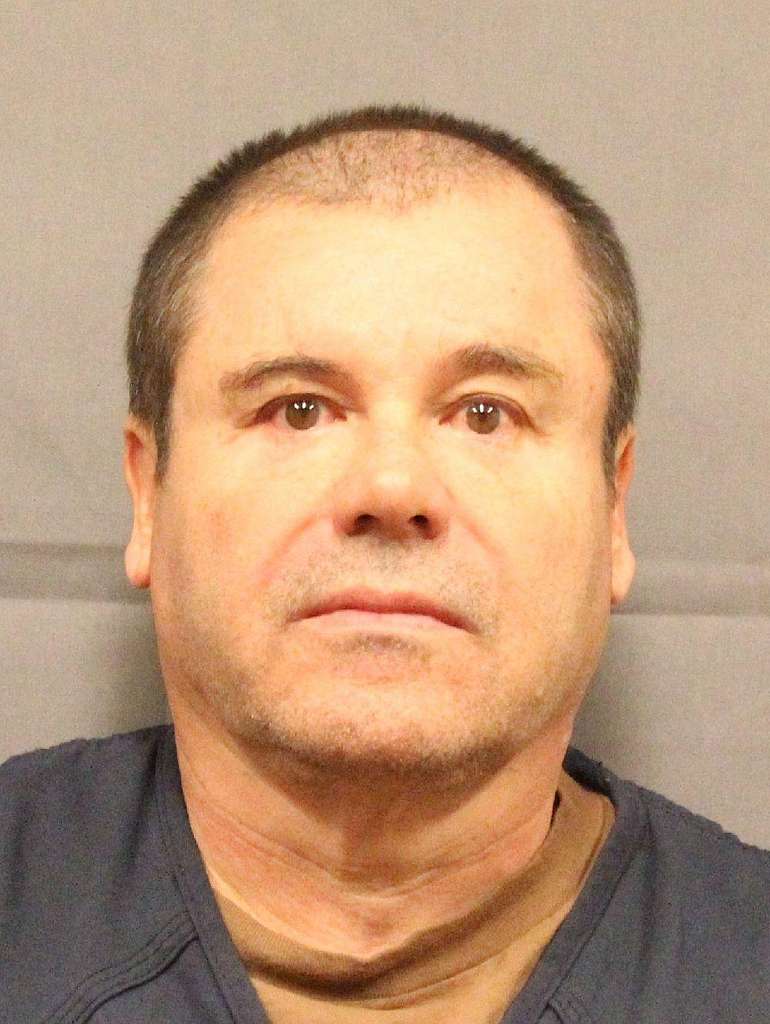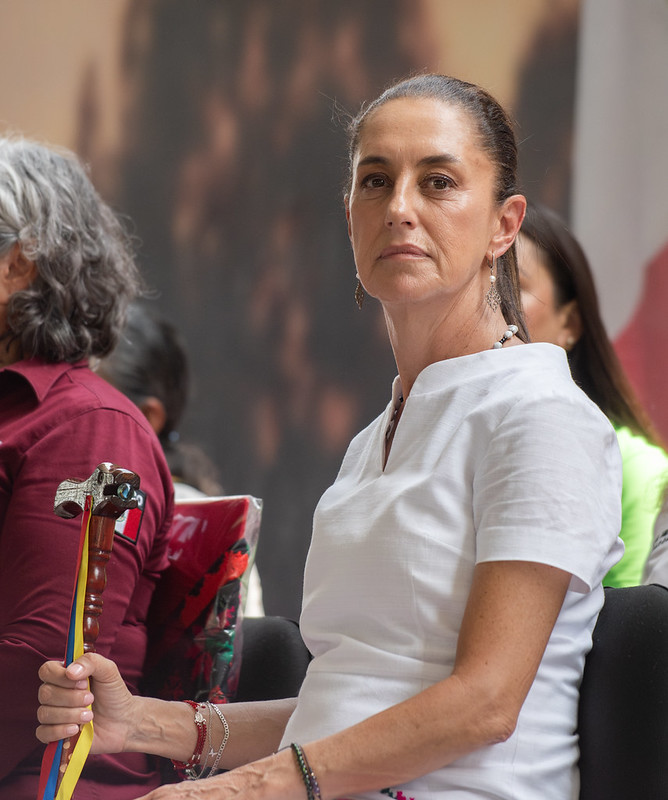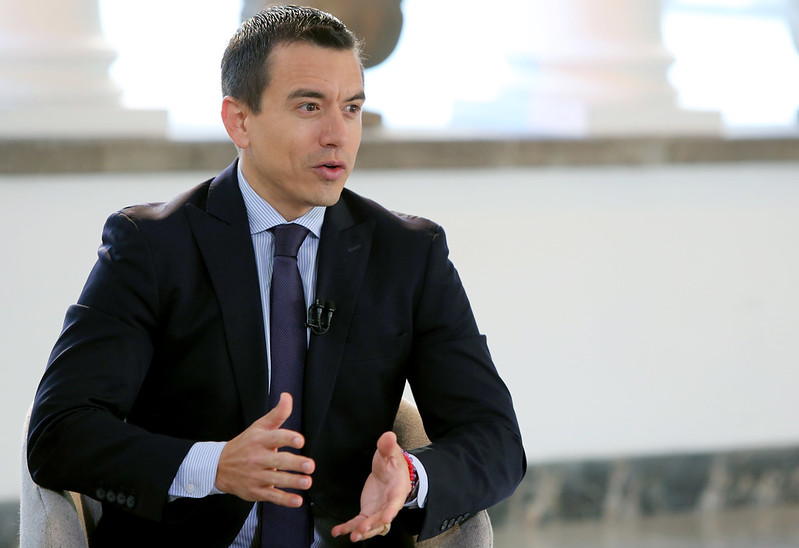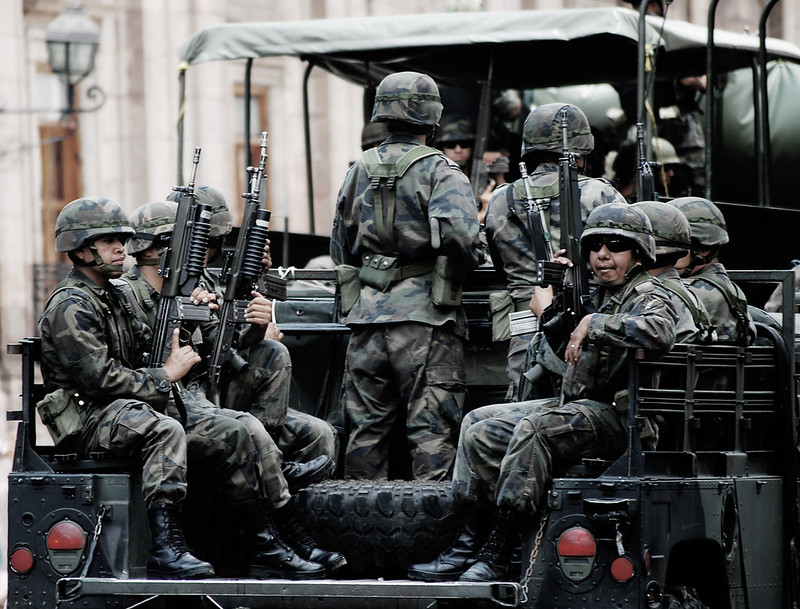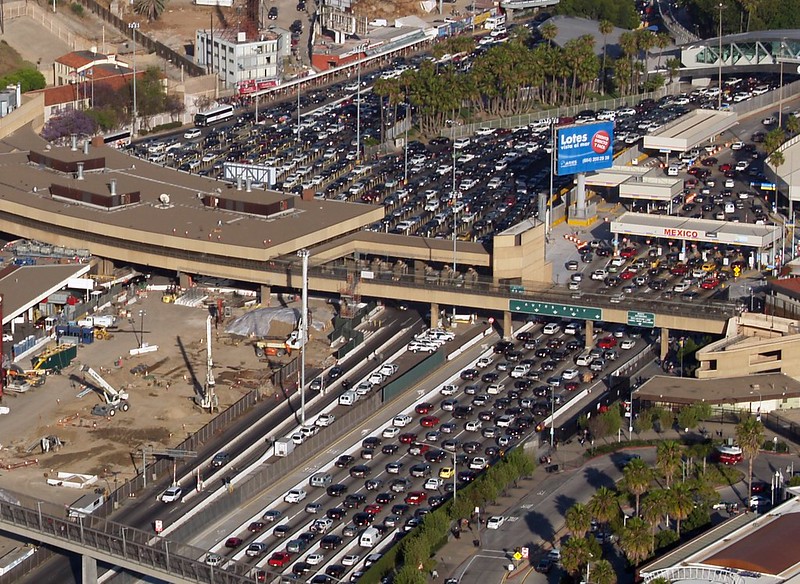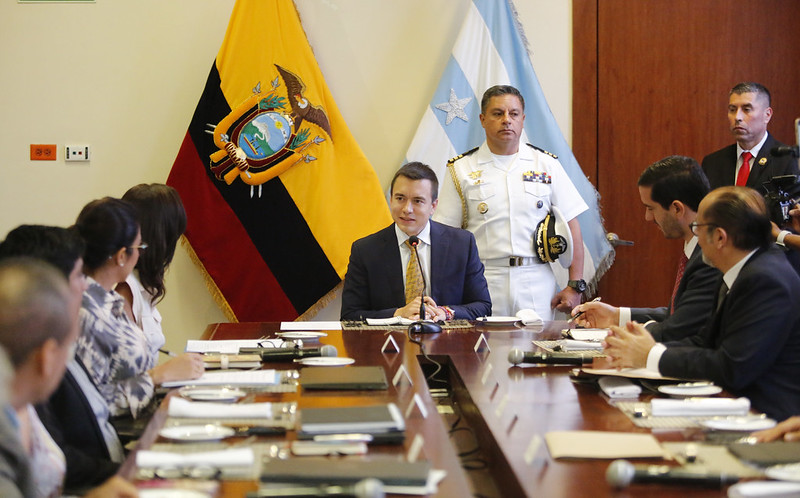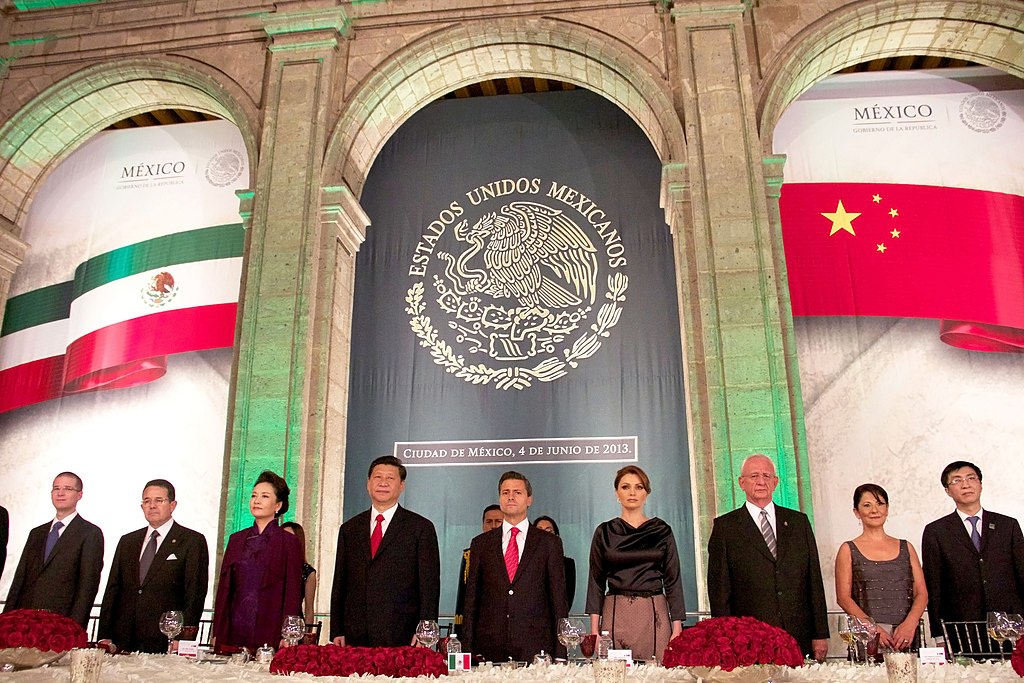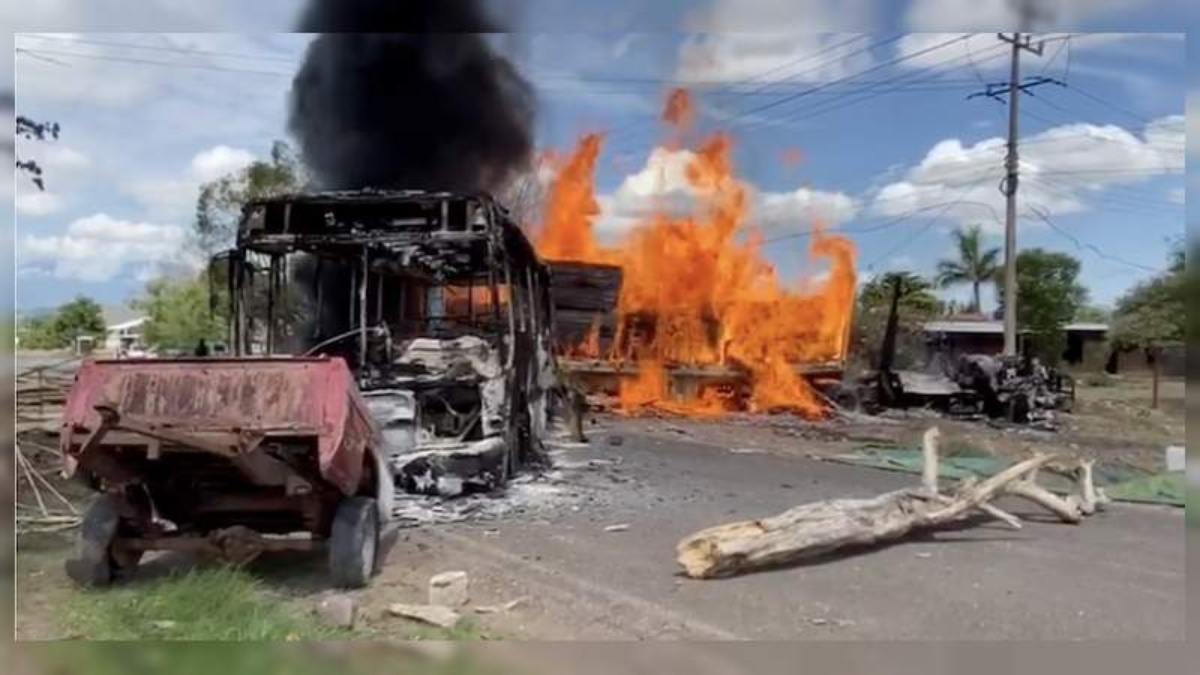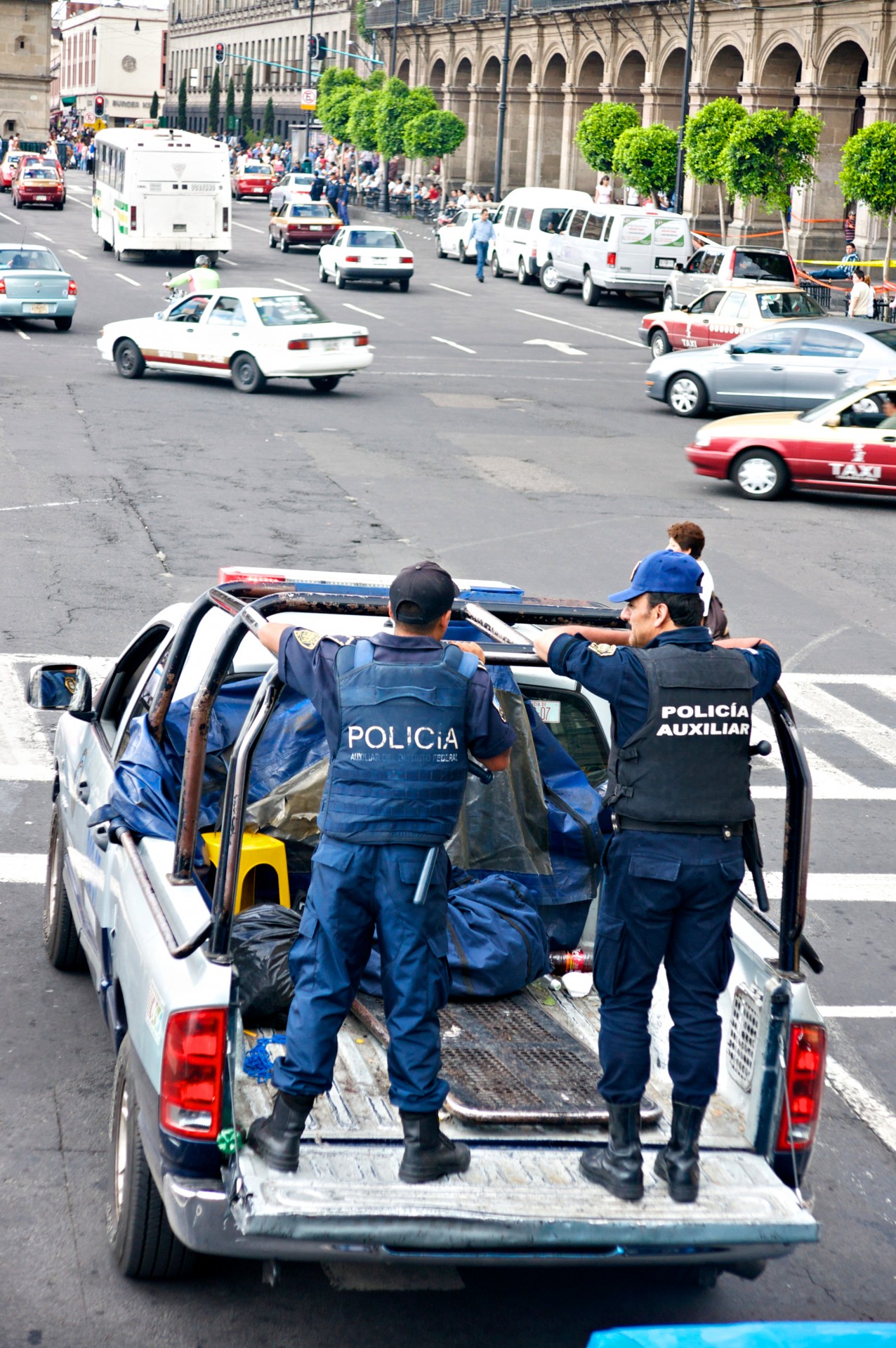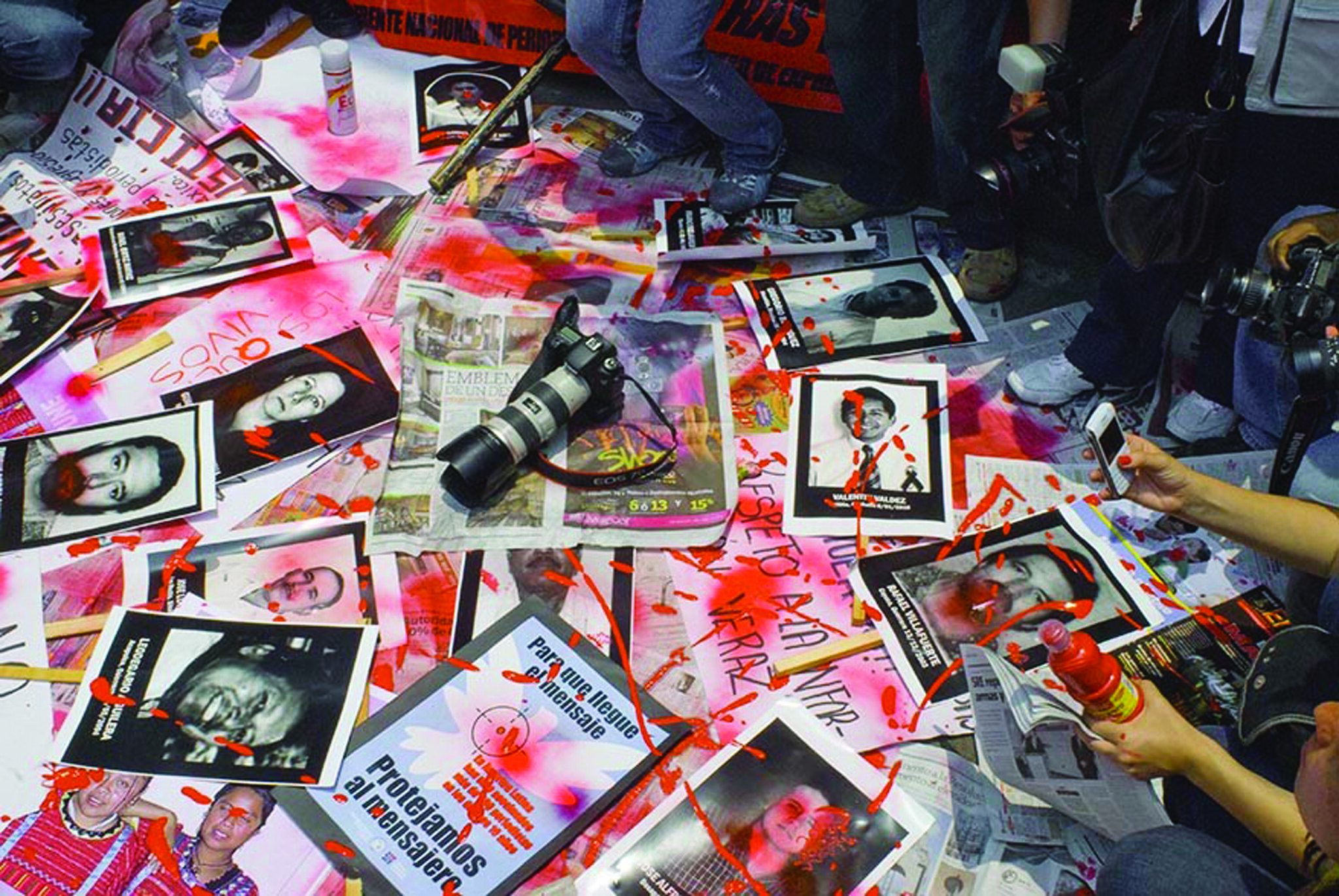
Journalists protest rising violence in Mexico.
“During López Obrador’s six-year term, crime claimed a record number of more than 190,000 lives, but the new president has ruled out confronting violence with more violence.”
Mexico’s President Claudia Sheinbaum assumed power in October in the middle of a full-blown security crisis. In just a few weeks, the State of Sinaloa has witnessed hundreds of deaths at the hands of warring factions within the Sinaloa Cartel.[i] Several public officials were assassinated, in one case—the mayor of Chilpancingo, the capital of Guerrero State—within a week of assuming office. Therefore, Sheinbaum presented her new security plan for Mexico at a critical moment. The excerpted article from left-center Argentine daily Página 12 emphasizes the continuity of Sheinbaum’s plan with that of her predecessor, Andrés Manuel López Obrador’s, security plan, dubbed “hugs, not bullets.” The article characterizes López Obrador as seeking to attack crime at its social roots. However, there will also be some innovations in Sheinbaum’s security plan. The Página 12 article reports that Sheinbaum will concentrate security efforts on the top ten most violent cities in Mexico. The second excerpted article from Mexican business-focused daily El Economista notes that almost half of all homicides occur in six districts in Mexico. In these districts, the fight for territorial control between the two largest cartels, Sinaloa and Jalisco New Generation, is most intense.
The success or failure of Sheinbaum’s security plan will have significant implications for the operational environment. Given their importance in the illicit drug and human smuggling routes, Mexico’s criminal cartels operate transnationally and drive much of Latin America’s criminal dynamics. A successful security plan in Mexico may have salutary effects for other countries, such as Ecuador, which are suffering from the expansion efforts of Mexican criminal organizations throughout Latin America.[ii]
Sources:
“Sheinbaum presentó su nuevo plan de seguridad (Sheinbaum presented her new security plan),” Página 12 (an Argentine daily known for a leftist bent), 9 October 2024. https://www.pagina12.com.ar/773339-sheinbaum-presento-su-nuevo-plan-de-seguridad
The former mayor of the federal district, who took office on October 1, pledged to maintain the strategy of her predecessor, Andrés Manuel López Obrador, who chose to employ a series of social policies to attack crime at its roots during his term…In her proposal, Sheinbaum projects what she calls a ‘100-day security strategy,’ according to which national security would focus on the 10 most dangerous cities and states in the country…During López Obrador’s six-year term, crime claimed a record number of more than 190,000 lives, but the new president has ruled out confronting violence with more violence…‘What are we going to use? Prevention, attention to the causes, intelligence and presence,’ she said.
“Sheinbaum presenta su plan de seguridad que busca abatir la espiral de violencia de otros sexenios (Sheinbaum presents her security plan that seeks to reduce the spiral of violence of other six-year terms),” El Economista (a Mexican daily focused on business and economy), 8 October 2024. https://www.eleconomista.com.mx/politica/sheinbaum-presenta-plan-seguridad-busca-abatir-espiral-violencia-otros-sexenios-20241008-729110.html
The president will launch her strategy after the mayor of Chilpancingo, the capital of the state of Guerrero, one of the six districts of the country that account for almost half of all homicides, was beheaded last Sunday, a few days after taking office. Violence in Mexico is concentrated in strategic points (drug routes, borders, ports of entry for Chinese fentanyl components, and avocado and lemon producing regions). In these areas, the two main cartels in the country, the Sinaloa Cartel and the Jalisco Nueva Generación (CJNG), operate and fight each other…Sheinbaum has only been in office for a week and the violence is relentless: the decapitation of the mayor of Chilpancingo, the discovery of 12 bodies in the state of Guanajuato, and some 150 people killed in three weeks in the state of Sinaloa.
Notes:
[i] For more on the internecine fighting within the Sinaloa Cartel, see: Christine Murray, “US Arrests Spark Cartel ‘War’ in Northern Mexico: ‘Like a Narco Pandemic,’” Financial Times, 28 September 2024. https://www.ft.com/content/0f883ce4-c922-48a7-b9e8-7793fccbf0c9
[ii] For more information on the presence of Mexico’s criminal organizations in Ecuador, see: Ryan Berg, “Why Ecuador’s Security Crisis Demands Global Action,” Center for Strategic and International Studies, 1 July 2024. https://www.csis.org/analysis/why-ecuadors-security-crisis-demands-global-action
Image Information:
Image: Journalists protest rising violence in Mexico.
Source: https://www.flickr.com/photos/knightfoundation/5569178904.
Attribution: CC BY-SA 2.0

